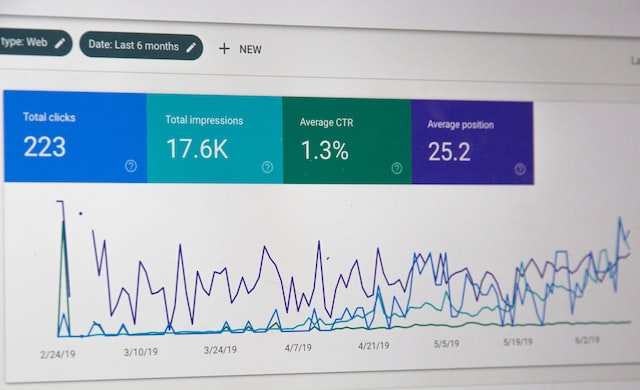
In recent years, advertisers and their ad agencies have prioritized attention measurement in their efforts to forecast and maximize outcomes. The idea is simple: if attention can be accurately assessed, it can assist forecast and improve the performance of advertisements, from increasing brand lift to driving sales and even modifying campaigns in real time. However, while attention is vital, it does not provide the complete picture. To properly understand what drives success, marketers must examine data quality, audience relevancy, creative execution, and the context of the ad. The complexities of assessing attention......
Continue Reading

I keep a screenshot on my desktop as a reminder. Every few months, I click on it to remind myself of a crucial lesson I failed to learn sooner. It begins: “If you don’t make time for your wellness, you will be forced to make time for your illness.” This also is true for marketers and martech managers who must handle various campaigns, tight deadlines, and constantly expanding technologies. In the race to generate outcomes, it’s tempting to neglect the value of one’s personal well-being. Overwork takes its toll Twenty years ago,......
Continue Reading

You started a campaign, generated leads, and now nothing. The leads are not converting into sales. Sales claims the leads aren’t good enough, while marketing claims sales did not follow up promptly enough. Sounds familiar? The actual issue is that your teams are not in sync. This gap means squandered chances, since competition shows no signs of slowing down. To achieve meaningful revenue growth, sales and marketing must collaborate.Why sales and marketing misalignment harms your business. Why do silos exist? Misaligned goals, fragmented tools, and poor communication are frequently the root causes......
Continue Reading

Traditional marketing monitoring techniques, such as unique phone numbers and coupon codes, are becoming less efficient. With stronger privacy restrictions and customers obtaining greater control over their data, marketers have shifted to digital attribution via pixel-based tracking. However, by focusing solely on the last interaction before conversion, this strategy fails to consider the entire customer experience. To better evaluate marketing impact, it’s vital to distinguish between attribution and measurement. Limitations of digital attribution Digital attribution entails giving credit to specific touchpoints, usually focused on the last engagement before conversion. However, this simplifies......
Continue Reading

Yes, I meant what I said in the title. And I say it with confidence, not arrogance, after 25 years of email marketing and witnessing company after company, vertical after vertical, fall somewhere along the email investment spectrum. Companies put substantial time and money in email, while others stumbled into it without making the same effort. However, I am seeing a shift in spending away from digital marketing, which has historically been the most successful option. The foundation of that solution is email marketing. This isn’t a widespread trend yet, but I’m......
Continue Reading

ChiefMartec and MartechTribe report that there are more than 14,000 martech tools available. It’s an overwhelming number that no one can keep track of. To make matters worse, many of these tools become data islands in the martech archipelago, storing little amounts of data particular to their role. This data fragmentation limits the insight we can obtain into our data because no platform can handle everything you know about contacts. Developing martech tools is expensive, and marketing budgets are unlikely to cover the costs. Most marketers would want a smaller number of......
Continue Reading

Foursquare, a business that specializes in geolocation technology, has just announced Sales Impact, a new product that is part of its suite of campaign attribution tools. Through the utilization of this tool, marketers are able to analyze the impact that multichannel campaigns have on sales by combining location and purchase details. In the past, the Foursquare Attribution goal utilized geolocation for consumers who were logged in to evaluate foot traffic to stores and other signals in order to estimate sales. Marketing professionals are able to better make the dots between campaigns and......
Continue Reading

People who work in digital ads and marketing really felt what the U.S. Federal Trade Commission (FTC) said on July 24, 2024. The FTC made it clear that hashing, which is often used by businesses to hide personal information, is not a foolproof way to protect privacy or identity. This is not new knowledge; it is well known that hashing as a privacy measure has its limits and can go wrong. But the FTC’s clear position sends a strong message to the business. One that could have big effects, especially since data......
Continue Reading

This article will go into more detail about workflows and look at how AI, and more especially visual workflow builders, will change how marketing teams work. From experts to techies who are creative A lot of marketing companies depend on experts. In a smaller business, one person may be in charge of all digital marketing. In a bigger business, social media, SEO, and email marketing are usually handled by different people. A bigger company might even specialize even more, telling the difference between paid and organic social media, or they might even......
Continue Reading

No longer a “nice to have,” having the tools and data to make choices based on data is a must. Teams that plan based on gut feelings and anecdotes are falling behind more advanced brands that use data insights and predictive analytics. The best way to run ads is with data-driven marketing. But it will be hard to change the way people act and make decisions so that they can use better knowledge. This is the first of three articles that will help marketers make the switch to making decisions based on......
Continue Reading
